Live on the homepage now!
Reader Supported News
The former president is responsible for financial crime within his organization, a Manhattan prosecutor told jurors Friday
Joshua Steinglass made the accusation during the second day of his closing argument in the criminal tax-fraud trial against several of Trump’s companies. Steinglass referred jurors to a 2012 document autographed by the former president himself, where he approved a $72,000 salary reduction for Trump Organization chief operating officer Matthew Calamari.
The prosecution has contended that Trump and his companies were well aware that Calamari, former chief financial officer Allen Weisselberg, and chief financial officer Jeffrey McConney were engaging in practices to secure untaxed income for executives vis-a-vis benefits such as gratis pads.
Steinglass’ comment prompted the Trump companies’ defense team to object — one of the many times they opposed points during his closing — and judge Juan Merchan called them to the bench. When their contentious confab came to an end, Steinglass continued in this vein.
Steinglass pushed back against what he described as the defense’s “narrative that Mr. Trump was blissfully ignorant” of his executives’ wrongdoing — and that the controversial mogul was a victim of Weisselberg and Calamari’s deception.
“He is not on trial,” Steinglass said of Trump, “but that does not mean that you should believe the defense’s narrative that Allen Weisselberg and Matt Calamari went rogue.”
“There’s been a lot of back and forth in this trial about the involvement of Donald Trump and other Trump family members,” Steinglass said at one point, contending the corporations would be legally liable whether any company owners knew. “We don’t have to prove a thing about what he knew or he didn’t know.
“Ultimately, it doesn’t matter.”
Steinglass’ first day of closings went into similar territory, with him telling jurors Thursday: “The Trump organization … cultivated a culture of fraud and deception.”
“It’s not that the folks at the Trump Organization didn’t know what they were doing was illegal — it’s just that they didn’t care,” Steinglass also said.
This line of argument hearkened to prosecutor Susan Hoffinger’s opening, which closely linked Trump to an alleged illegal compensation scheme that purportedly lined the pockets of Weisselberg, his longtime moneyman, and other company honchos.
During defense closings on Thursday, two Trump company lawyers squarely placed the blame on Weisselberg while also casting him as a sort of tragic figure — a man whose admirable loyalty was no match for subsuming avarice.
“Mr. Weisselberg dedicated his life to the Trump family … to Fred, to Don, to Don Jr. He helped grow the Trump Organization into the company it is today,” said defense attorney Susan Necheles. “But along the way, he messed up, he got greedy — and once he started, it was difficult for him to stop.”
“Mr. Weisselberg admitted that during this long scheme, no member of the Trump family knew about his ongoing efforts to evade taxes. He was ashamed of what he was doing: You saw him on the witness stand, almost crying,” Necheles told jurors. “He knew he was doing something wrong and he was ashamed of it, and he kept it secret. When his wrongdoing came to light, the Trump family did not fire him, they did not kick him to the curb after nearly 40 years. How do you fire a member of your own family?” Necheles asked. But, “Mr. Weisselberg broke the law … Mr. Weisselberg is paying for his own wrongdoing.”
And while Weisselberg turned state’s evidence to save himself from a lengthy prison sentence — agreeing to testify in exchange for a shorter jail term — he didn’t say anything that implicated Trump’s companies in wrongdoing, Neceheles argued. “He’s atoning for his sins, but as part of the plea deal, the prosecution forced him to testify against the company he helped to build. Now the prosecution’s case rests on one thing: trying to convince you, the jurors, that Mr. Weisselberg’s actions were done in behalf of the company.” Weisselberg, Necheles said, said “they were done solely to benefit himself — and that is the critical issue in this case.”
Necheles stressed that the key point hinges on who Weisselberg wanted to benefit. He wasn’t trying to help his employer, meaning that the Trump Organization wasn’t on the hook for criminal liability, Necheles contended. “Over and over again, Allen Weisselberg and [Comptroller] Jeffrey McConney testified that Allen Weisselberg committed these crimes solely to benefit himself … in other words, no intent to benefit the corporation,” Necheles claimed. “That is the critical issue in this case.”
The Manhattan District Attorney’s Office’s 2021 indictment of several Trump companies, including his eponymous Trump Organization, alleged a 15-year-long tax-fraud scheme. The purported financial misconduct stemmed from alleged untaxed benefits to Weisselberg, in a “sweeping and audacious illegal payments scheme.”
Prosecutors said that Weisselberg — who for decades was Trump’s top moneyman — benefited greatly for his nearly five decades of fealty to the family. Beginning in 2005, Weisselberg lived in a free apartment on Manhattan’s West Side. The Trump Corporation, which had the lease on this pad, paid Weisselberg’s rent, as well as his utility bills and parking garage fees, the indictment claimed.
These benefits didn’t stop at gratis living: Trump’s company allegedly paid for the leases on two Mercedes Benzes that Weisselberg and his wife allegedly used as their personal rides. Several of Trump’s companies also gifted cash to Weisselberg during the holiday season, so he could provide “personal holiday gratuities,” per prosecutors’ previous statements. Altogether, these plum perks amount to $1.7 million in untaxed benefits.
Weisselberg pleaded guilty in August to a 15-count indictment involving these payouts. Weisselberg responded “yes, your honor” when Merchan asked whether he “engaged in a scheme” with the Trump Organization “to defraud federal, New York state, and New York City tax authorities.” Weisselberg’s bombshell admission seemed to directly implicate Trump’s businesses in criminal activity, such as tax fraud and falsifying business records. Weisselberg testified for the prosecution at trial; the plea deal stipulated that he had to “testify truthfully” if called to the stand.
Indeed, Weisselberg was the prosecution’s star witness. Over several days of testimony, Weisselberg tied Trump’s companies — and to some extent the ex-president himself — to illegal tax shenanigans. He said “the rent was authorized by Donald Trump,” when asked about the free apartment. Weisselberg also told jurors that the Trump Corporation paid his utility bills there. “It’s your understanding that was authorized by Mr. Trump?” Hoffinger asked. Weisselberg said: “That was my understanding, yes.” Weisselberg also testified that Trump paid his grandchildren’s private-school tuition. Prosecutors contend this constituted a benefit that also should have been taxed.
Weisselberg’s second day on the stand was far more dramatic, with him saying that he and other execs worked to scrub fishy financial practices from several Trump companies’ books when the real-estate mogul became president. “We were going through an entire cleanup process at the company after Mr. Trump became president so that everything was done properly,” Weisselberg testified. “When Mr. Trump became president and everybody was looking at our company at every different angle,” Weisselberg continued, they went through “all the practices we’d been utilizing over the years and … we corrected everything we had to correct.”
Weisselberg won’t be sentenced until after the trial concludes, “to ensure compliance” with his end of the bargain. He also has to pay about $2 million in unpaid taxes and penalties. With compliance, Weisselberg’s sentence would be five months in jail followed by five years probation. Notably, the arrangement is not a cooperation deal; Weisselberg had to provide testimony if asked, and wound up doing so.
Necheles also insisted that Weisselberg’s changing pay after Trump became president — he stopped taking untaxed benefits and, in 2018, got a real raise — did not indicate financial wrongdoing on the company’s part.
“After Donald Trump became president of the United States, the Trump Corporation and its employees went through some very tough times,” Necheles said. “They were overworked and understaffed.” They couldn’t hire people whom they didn’t know and trust. “Life had become very difficult for the employees,” Necheles said. “Jeffrey McConney told you it was no longer a fun job.”
Eric Trump, who was effectively running things at Trump Org, “was far more generous with raises than his father.” This — not wrongdoing — explained Weisselberg and McConney’s raises some four years ago.
Trump Payroll Corporation lawyer Michael van der Veen similarly blamed Weisselberg. “Weisselberg did it for Weisselberg,” he said at various points during closings. At times, van der Veen struck the lectern to drive home his point with a loud noise. Weisselberg turned on the companies, he said, because he had no other choice. “The prosecutors had him by the balls,” van der Veen said.
While Necheles’ depiction of Weisselberg had a clear and familiar narrative arc — Icarus-meets-financial-crime, if you will — it’s unclear how this landed on jurors. Indeed, it appeared that two panelists were having some trouble keeping their eyes open.
Necheles did deserve credit, though, for recognizing the lugubrious nature of a trial where purported smoking guns take the form of ledgers and receipts. “It’s a tax case, and I know that some of the evidence, testimony has been deadly boring,” Necheles said while thanking jurors for their service. Several chuckled.
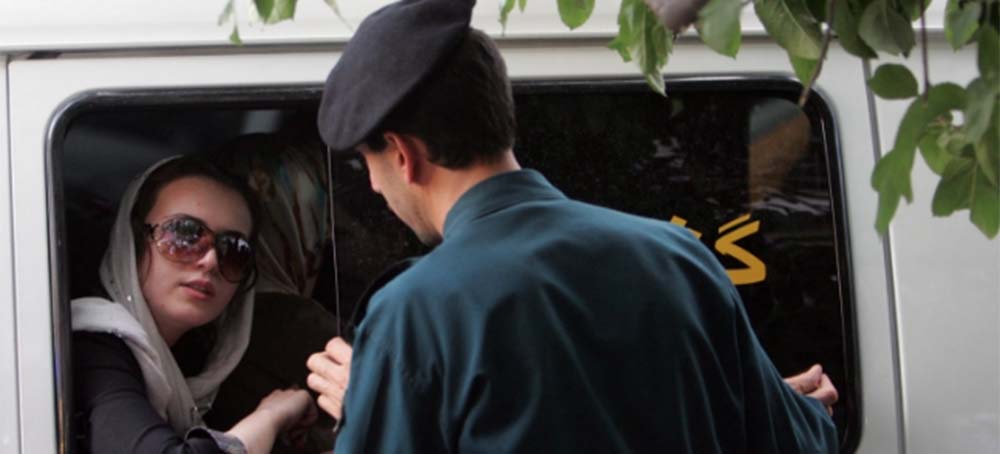 An Iranian policeman speaks with a woman in a police car after she was arrested because of her 'inappropriate’ clothes. (photo: Behrouz Mehri/AFP)
An Iranian policeman speaks with a woman in a police car after she was arrested because of her 'inappropriate’ clothes. (photo: Behrouz Mehri/AFP)
There has been no official police confirmation on the forces being taken off the streets, and no sign that a law requiring mandatory hijab will be changed.
The protests erupted shortly after the death of Mahsa Amini, a 22-year-old woman who was arrested by a unit of the morality police in Tehran for allegedly not adhering to the country’s mandatory dress code for women.
Speaking on Saturday at an event about “outlining the hybrid war during recent riots”, which is how Iranian officials describe alleged foreign influence in the unrest, Prosecutor General Mohammad Jafar Montazeri was quoted as saying by local media that morality police operations are over.
The morality police “has no connection with the judiciary and was shut down by the same place that it had been launched from in the past”, he said, reportedly answering a question on why the morality police have been shut down.
There were no other confirmations that the work of the patrolling units – officially tasked with ensuring “moral security” in the society – has been terminated. Montazeri also did not say the morality police have been indefinitely scrapped.
Moreover, there was no indication the law that imposes the mandatory dress code will be terminated.
Instead, authorities appear to be reviewing ways the hijab law can be implemented, and there is little to suggest that the law will be removed.
Montazeri had said last week that both parliament and the judiciary “are working and studying the issue of hijab”.
The morality police forces would ride around in white and green vans, mostly telling women on the streets to fix their headscarves or taking them to so-called “re-education” centres if deemed required, but the vans have not been seen around Tehran or other cities recently.
It was in one of those centres where Amini appeared to suffer a stroke as shown by security camera footage the authorities released. She died in a nearby hospital after being in a coma for three days.
A final report by the coroner’s office claimed she died as a result of pre-existing conditions, but her family said they suspected she was beaten.
Persisting unrest
Women have featured prominently in the protests that started after Amini’s death, with her name and images widely used inside and outside the country. Women have also burned their head coverings and cut off their hair in displays of protest and solidarity. “Woman, life, freedom,” has become the rallying cry for protesters.
Iranian authorities have accused the United States, Israel, European powers and Saudi Arabia of being behind the persisting unrest, saying they used Amini’s death as an “excuse” to target the country and its foundations.
The hijab, which has been mandatory since shortly after the country’s 1979 Islamic revolution, has been a central ideological issue for Iranian authorities, who have repeatedly said they will not back down from it.
They have, however, recently signalled they may revise the ways in which the mandatory dress rules are implemented without specifying details.
A number of local officials previously hinted at methods such as using artificial intelligence or camera footage to impose financial penalties on perceived offenders.
Drivers who are seen to be flouting the hijab rules already receive warnings and fines and could ultimately have their vehicles impounded in case of repeat offences.
READ MORE Former National Security Agency contractor Edward Snowden addresses an audience from Russia during the annual Web Summit technology conference in Lisbon in 2019. (photo: SOPA Images/LightRocket/Getty Images)
Former National Security Agency contractor Edward Snowden addresses an audience from Russia during the annual Web Summit technology conference in Lisbon in 2019. (photo: SOPA Images/LightRocket/Getty Images)
“Edward received a Russian passport yesterday and took the oath in accordance with the law,” lawyer Anatoly Kucherena said, according to Russia’s Interfax news agency. “He is, of course, happy, thanking the Russian Federation for the fact that he received citizenship,” he continued. “And most importantly, under the Constitution of Russia, he can no longer be extradited to a foreign state.”
Snowden, 39, is wanted by Washington on espionage charges. He argues that his actions were in the interests of the United States. In any case, his revelations exposed the breadth of U.S. digital spying programs and altered the public’s understanding of technology, privacy and digital security.
It’s unclear whether Snowden swore the oath of allegiance at the same time as he was granted a passport, but the two are common procedures when foreigners become Russian citizens. The text includes swearing “to protect the freedom and independence of the Russian Federation, to be loyal to Russia, to respect its culture, history and traditions,” and to promise to “perform the duties of a citizen of the Russian Federation for the good of the state and society.”
Kucherena added that Snowden’s wife, Lindsay Mills, was also undergoing the Russian citizenship application process and that the couple’s children would likely attend Russian schools, when ready. He said he communicated mainly in English with his client but that Snowden also speaks Russian, albeit “not perfectly.”
Russian President Vladimir Putin granted Snowden citizenship in September, in a decree that covered 72 foreigners. Putin has previously called Snowden’s actions wrong but said he “is not a traitor,” since “he did not betray the interests of his country.”
Russia and Ukraine are fighting the first full-scale drone war
After being granted citizenship, Snowden tweeted: “After years of separation from our parents, my wife and I have no desire to be separated from our SONS. After two years of waiting and nearly ten years of exile, a little stability will make a difference for my family. I pray for privacy for them — and for us all.”
Snowden was given asylum in Russia in 2013 after he fled the United States to avoid prosecution. He was granted permanent residency in 2020, and his lawyers said at the time that he was applying to obtain a Russian passport without renouncing his U.S. citizenship.
Pentagon eyes major expansion of Ukraine military training
He explained his decision to seek dual citizenship on Twitter in 2020 as being necessary to prevent being separated from his son. In an “era of pandemics and closed borders, we’re applying for dual US-Russian citizenship,” he wrote.
“Lindsay and I will remain Americans, raising our son with all the values of the America we love — including the freedom to speak his mind. And I look forward to the day I can return to the States, so the whole family can be reunited,” he added.
Snowden’s revelations, published first in The Washington Post and the Guardian newspaper in 2013, caused international shock waves and were among the most consequential intelligence breaches in U.S. history.
He disclosed the existence of the NSA’s collection of millions of Americans’ phone records, a program later found by a federal appeals court to be unlawful and subsequently shuttered. The disclosures also damaged the intelligence community’s relationship with the American tech industry.
Snowden swore his oath and received his passport as Moscow continued its war on Ukraine, now in its 10th month. His lawyer, Kucherena, said when Snowden was granted citizenship that he would not be subject to the partial military mobilization that Putin had decreed days before, since only men with previous military experience were being called up. However, it has been widely reported that many Russians without such experience have been summoned for duty in recent months.
A State Department spokesman said Friday the United States is “aware of the reports” about Snowden but is “not in a position to confirm or deny whether Mr. Snowden has acquired Russian Federation citizenship.”
READ MORE 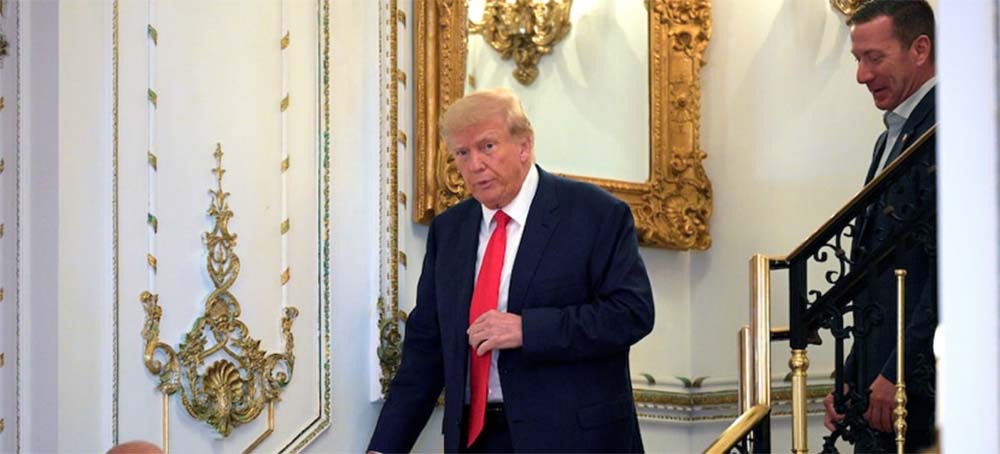 Former president Donald Trump on Nov. 8 in Palm Beach, Fla. (photo: Phelan M. Ebenhack/WP)
Former president Donald Trump on Nov. 8 in Palm Beach, Fla. (photo: Phelan M. Ebenhack/WP)
I finally caved, in July 2015, with this prescient sentence: “Do not worry about Donald Trump becoming president.”
There was a time, in the increasingly appalling months and years that followed, that I deemed Trump too dangerous to disregard and I could not stop calling out his never-ending, ever-escalating outrages against American democracy. Mexican judges. Enemies of the state. Fake news. Muslim bans.
Even a columnist gets tired of repeating herself. And so, during his final stretch in office, and in the years since, I mostly averted my gaze. I called out Trump last August, when he warned darkly of “riots in the streets” after the Justice Department’s search of his Mar-a-Lago residence and before that, in December 2020, when he released a 46-minute video rant assailing the election.
But I mostly thought: Why bother? Shaming targets and convincing readers are the columnist’s goals. With Trump, no minds will be changed, and neither will his behavior.
And yet, there are times when attention must be paid — if only to lay down a marker, if only (grandiose as this may sound) so historians will understand: This went too far. This cannot be allowed to stand without being denounced.
I might have made this choice in the aftermath of Trump’s dinner with antisemites and Nazi sympathizers Ye (formerly known as Kanye West) and Nick Fuentes. Who could have imagined, in the time before Trump, that a former president of the United States and declared candidate for president would so sully himself and the office?
But I am moved, now, to write about Trump’s latest post, on his Truth Social network, because it is at least equally dangerous and even more insidious.
“So, with the revelation of MASSIVE & WIDESPREAD FRAUD & DECEPTION in working closely with Big Tech Companies, the DNC & the Democrat Party, do you throw the Presidential election results of 2020 OUT and declare the Rightful Winner, or do you have a new election,” Trump posted. “A massive Fraud of this type and magnitude allows for the termination of all rules, regulations, and articles, even those found in the Constitution. Our great Founders did not want, and would not condone, False & Fraudulent Elections!”
And, he followed up, “UNPRECEDENTED FRAUD REQUIRES UNPRECEDENTED CURE!”
Pause to take this in. The former and would-be future president has suggested suspending the Constitution in support of his deranged belief that he won the election and that its results are subject to change. A man who took an oath to “preserve, protect and defend” the Constitution now has hijacked “our great Founders” in the service of his megalomania.
No.
This is insurrectionism by social media. Nothing — and certainly not imaginary “Fraud,” capitalized or not — “allows for the termination” of constitutional guarantees. Trump is laying the groundwork for a coup.
We can dismiss the post as just the latest Trumpian bluster, something he will never be capable of implementing. Yet the mere willingness to entertain and encourage extra-constitutional action is alarming coming from a man who is seeking to return to office.
Which is why Trump’s words must be highlighted — and called out. I’m past expecting Republican leaders to speak out. We know that, for most, their spines have collapsed and their courage reduced to a shrunken kernel.
Trump “says a lot of things, but that doesn’t mean that it’s ever going to happen,” was the most that Rep. David Joyce (Ohio), chair of the Republican Governance Group, could choke out in response to questions by ABC’s George Stephanopoulos.
The White House was right to rebuke Trump. “Attacking the Constitution and all it stands for is anathema to the soul of our nation and should be universally condemned,” spokesman Andrew Bates said in a statement. If anything, the words should have been issued in the name of the president himself.
Others made more puzzling choices. For a full day, the New York Times, so far as I can find, made no mention of Trump’s post. I assume this was not an oversight but a deliberate decision not to let Trump hijack its product for his unpatriotic purposes.
I get it, but I’m glad the Times relented with a news report Sunday afternoon. The episode embodies the paradox of dealing with Donald Trump. We do not want to give him oxygen, yet there are times we dare not ignore him. This is one. It should be neither excused nor forgotten.
READ MORE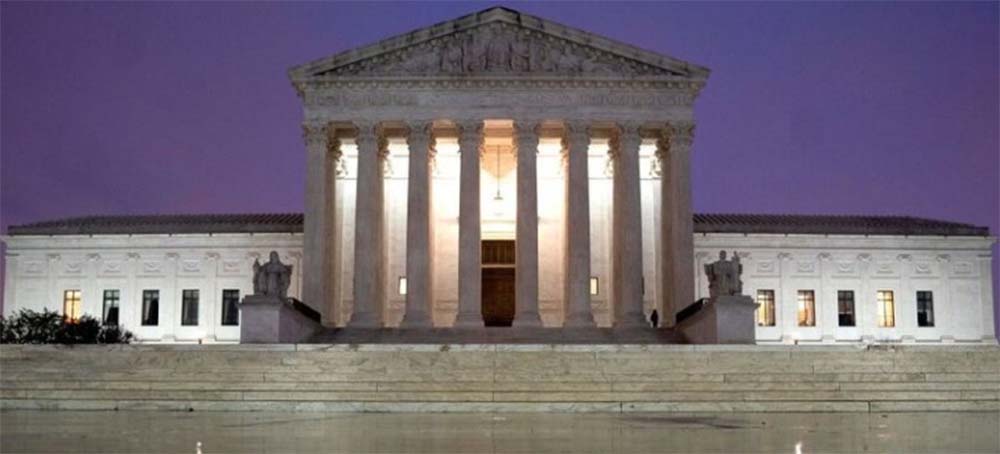 United States Supreme Court Building. (photo: Stefani Reynolds/AFP/Getty Images)
United States Supreme Court Building. (photo: Stefani Reynolds/AFP/Getty Images)
For nearly a decade, the justices have dodged and weaved on this clash of legal values, declining to hear some cases, and punting on one involving a baker who refused to make custom wedding cakes for same-sex couples. But now the issue is back before a far more conservative court, a court that reached out to hear Monday's case even before any same-sex couples complained that they were the victims of illegal discrimination.
The plaintiff in the case, instead, is business owner Lorie Smith, a Colorado web designer who for the past decade has created all kinds of custom websites for clients.
"The pieces I create are art. They're one of a kind. They're unique," she said in an interview with NPR. "I cannot create something that violates the core of what I believe."
Smith says that because of Colorado's public accommodations law, she cannot do what she wants to do most — custom web designs for weddings. The reason: She believes that marriage should only be between a man and a woman.
"I want to create and design for weddings that are consistent with my faith," she says, adding that she "can't do that that because" Colorado is "censoring and compelling" her speech by "forcing" her to create custom websites "that would contradict" her view of marriage. So, even though she hasn't actually launched a wedding website business yet, she is pre-emptively challenging the Colorado's public accommodations law as a violation of her First Amendment right to free speech and expression.
The state's view
Colorado Attorney General Philip Weiser says the state law is not seeking to dictate what Smith says in her web designs. He contends that Colorado allows any individual or business to create whatever they want, but "if you open your doors and say you are serving the public, you have to serve everyone, regardless of sexual orientation, religion, race, or gender."
The state doesn't care about Smith's message, he adds. Rather, "The question is more one of conduct. Will you sell the product or service to whoever from the public knocks on your door."
Web designer Smith notes that she has created websites for gay and lesbian clients selling other products and services, but that she believes marriage is between a man and a woman. Moreover, she says she has refused to use her talents for those who want to convey all kinds of other messages as well.
"I've declined political messages, messages that promote atheism, messages that are anti-American, messages that are racist, messages that denigrate LGBT people or other people." If I don't believe in the message a prospective client wants, she says, "I have to say 'no.'"
That just doesn't work as a legal rule, says says University of Pennsylvania law professor Tobias Wolff, who filed a brief in the case siding with Colorado.
"Imagine if the website designer, the cake decorator, the wedding photographer," were to "show up at the wedding and then proceed to say to the people getting married, 'I don't like this part of your vows.' or 'these people can't be in your wedding party because I'm the speaker here.' We would think they were nuts, right?"
Nuts, he says, because these wedding vendors aren't "street corner speakers standing on a soapbox, proclaiming their own message." Instead, they have set up a business "to sell [their] talents in the commercial marketplace, and when you do that, you are placing those talents in service of your customers," Wolff says. "And that's just a very different situation and one that the First Amendment treats very differently."
Where is the line?
"Speakers don't lose their rights when they enter the public square and try to earn a living," counters Kristen Waggoner, the lawyer representing Lorie Smith in the Supreme Court. Waggoner draws the constitutional line in a very different place.
"The line is the government doesn't have the power to compel an individual to speak." she argues. It's "simple," has "stood the test of time," and "is protected by the First Amendment." The rationale is the same, she says, for a Black sculptor who doesn't want to design for the Aryan Church, or the Democratic Party publicist who doesn't want to advance Donald Trump's agenda.
But professor Wolff replies that the compelled speech doctrine has never been applied in the commercial marketplace where "the only thing that the government is doing is establishing a neutral set of rules that everybody has to play by."
If that is no longer the case, he asks, what if a business owner were to say that he doesn't want to serve interracial couples because he views them as acting against God's law that marriage should be between people of the same race?
Waggoner dismisses that argument, noting that when the Supreme Court declared marriage a right for same-sex couples in 2015, the court, as she put it, "explained very clearly" that many "decent and honorable" people hold beliefs opposed to same-sex marriage. In contrast, she says, "interracial marriage laws are grounded in white supremacy and they're designed to subjugate an entire class of people."
Now the Supreme Court will decide just where state, local, and even the federal government may draw the line when it comes to same-sex couples and laws requiring businesses that are open to the public to serve everyone on an equal basis.
READ MORE  Palestinian mourners gather around the body of Omar Manaa in the occupied West Bank. (photo: Mussa Qawasma/Reuters)
Palestinian mourners gather around the body of Omar Manaa in the occupied West Bank. (photo: Mussa Qawasma/Reuters)
The killing reportedly occurred during an Israeli raid and comes amid an ongoing crackdown in the occupied West Bank.
The official Palestinian news agency WAFA said the victim is 22-year-old Omar Manaa, and that six other Palestinians were also wounded.
The shooting, which occurred near the city of Bethlehem on Monday, comes amid a crackdown by Israeli forces in the territory, with near-daily raids in the occupied West Bank, leading to killings and arrests.
According to WAFA, Israeli soldiers entered the Deheishe refugee camp on the outskirts of Bethlehem in the morning, sparking clashes with a group of local residents then firing tear gas and opening fire at the crowd.
The Israeli military said soldiers entered the camp to arrest what it described as three “wanted militants”. It said the soldiers opened fire after the crowd hurled rocks and firebombs at them.
The latest killing comes amid sky-high tensions and bursts of violence as the most right-wing government in Israel’s history is poised to be installed in the coming weeks.
More than 10 Palestinians have been killed since last week in the occupied West Bank, including 23-year-old Ammar Mufleh, who was shot at point-blank range by Israeli police in broad daylight on December 2.
Footage of the incident in Huwara showed Mufleh being held in a headlock by an Israeli soldier, as two other men try to wrestle him away.
In an effort to free himself of the soldier’s grip, Mufleh then appears to hit the soldier and tries to take hold of his rifle before the soldier pulls out a handgun and shoots him several times as he falls to the ground.
Palestinian activists have said the killing amounted to an “execution”.
In November, the United Nations special coordinator for the Middle East peace process, Tor Wennesland, said 2022 was on track to be the deadliest year for Palestinians in the occupied West Bank since the international body began keeping records of killings in 2005.
At least 140 Palestinians have been killed in the territory so far this year.
In total, in 2022, more than 200 Palestinians have been killed in the West Bank, East Jerusalem and the blockaded Gaza Strip, where Israel conducted air raids early on Sunday after a rocket landed in southern Israel.
Israeli has said the raids in the occupied West Bank are in response to a string of deadly attacks against Israelis earlier this year.
READ MORE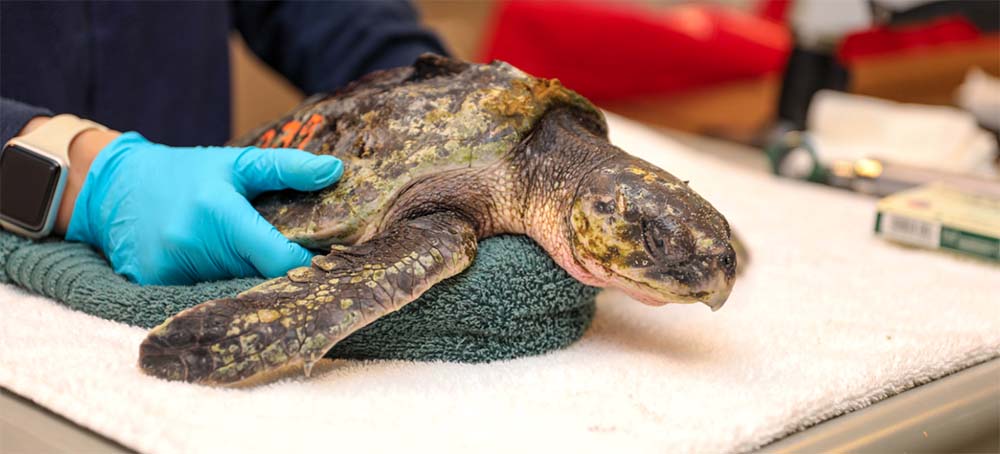 A Kemp’s ridley sea turtle awaits an intake exam. (photo: Vanessa Kahn/New England Aquarium)
A Kemp’s ridley sea turtle awaits an intake exam. (photo: Vanessa Kahn/New England Aquarium)
Sea turtles have had hypothermia and washed up on shore in the region since the 1970s, but numbers have increased considerably.
“Now we're seeing hundreds of turtles, really, where we used to see tens,” said Adam Kennedy, the director of the New England Aquarium’s Sea Turtle Hospital. He said the number has roughly quadrupled since around 2012.
So far this year, Sea Turtle Hospital is taking care of more than 100 animals — about 80 Kemp's ridley turtles, an endangered species, and 30 green turtles. By December, they expect to be seeing loggerheads.
At the hospital, the turtles are gradually warmed up in different tanks to help them recover their ability to swim and eat. They also get x-rays and receive treatment for dehydration and diseases like pneumonia.
Once they've recovered, some turtles will be released in warmer waters in the southeast in states like Florida and Georgia and others will over-winter at the aquarium to be released next summer. Rescue teams expect to see more turtles washing up through December of this year, and they plan to keep treating them.
Researchers say it’s concerning that the number of stranded turtles has increased over the last decade. Some studies suggest the increase is due in large part to climate change warming the ocean off the New England coast, which is allowing the turtles to venture further north.
“With the warming of the Gulf of Maine, that kind of wall of cold water pushing them south isn't there as much throughout the summer as it would have been previously,” Kennedy said.
When it's time to migrate south, Kennedy says they get trapped into the hook of the bay. And it’s counterintuitive for them to swim north and loop around the Cape.
Lucas Griffin, a researcher at University of Massachusetts Amherst, studied Kemp’s Ridley sea turtles in the Cape Cod Bay. He said his study suggested warmer late summers and early falls are driving higher cases of cold-stunned turtles. Longer-lasting warm water leads the turtles to delay their migration south, and then they are unexpectedly caught in cold weather. Once a turtle becomes hypothermic, it often loses flipper control and cannot swim, which can lead to its death.
“In the Gulf of Maine, some put it as upwards of over 90% rapid increase in temperature compared to other areas. So we expect this trend to continue into the future,” said Griffin.
As temperatures keep rising, Griffin and other scientists expect the number of cold-stunned sea turtles will keep increasing.
Follow us on facebook and twitter!
PO Box 2043 / Citrus Heights, CA 95611

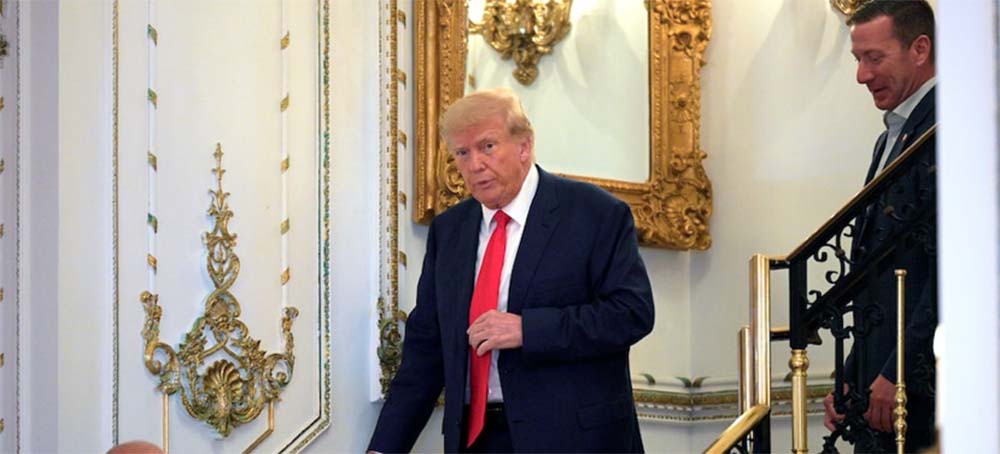
No comments:
Post a Comment
Note: Only a member of this blog may post a comment.